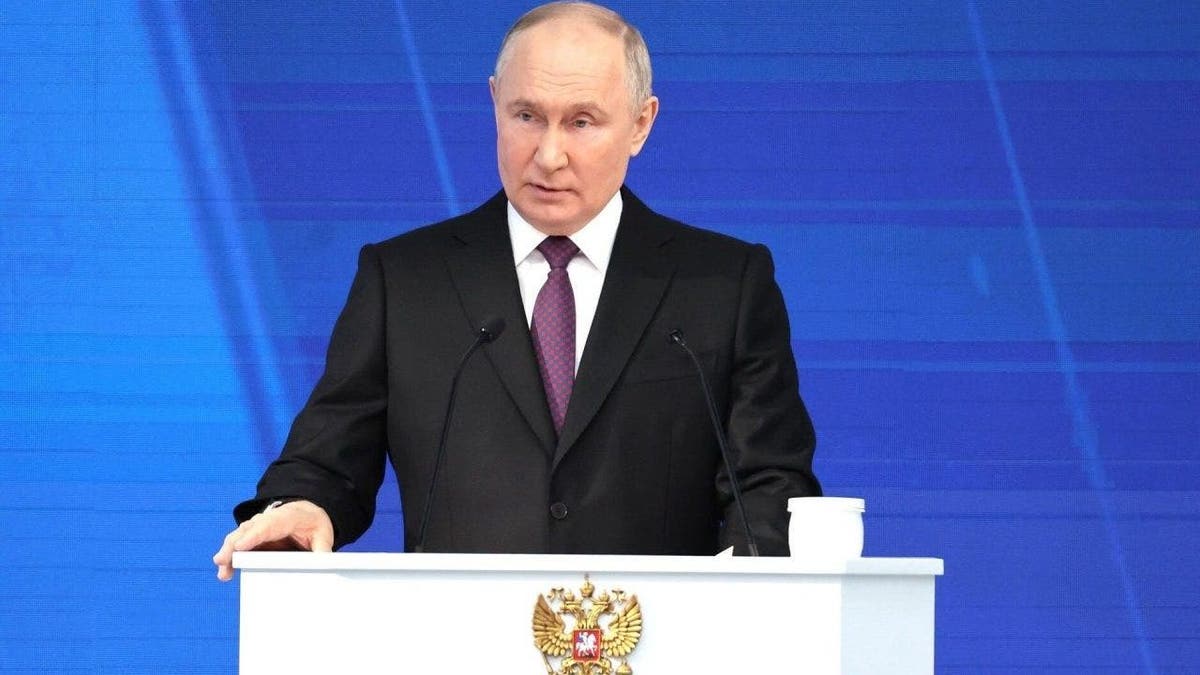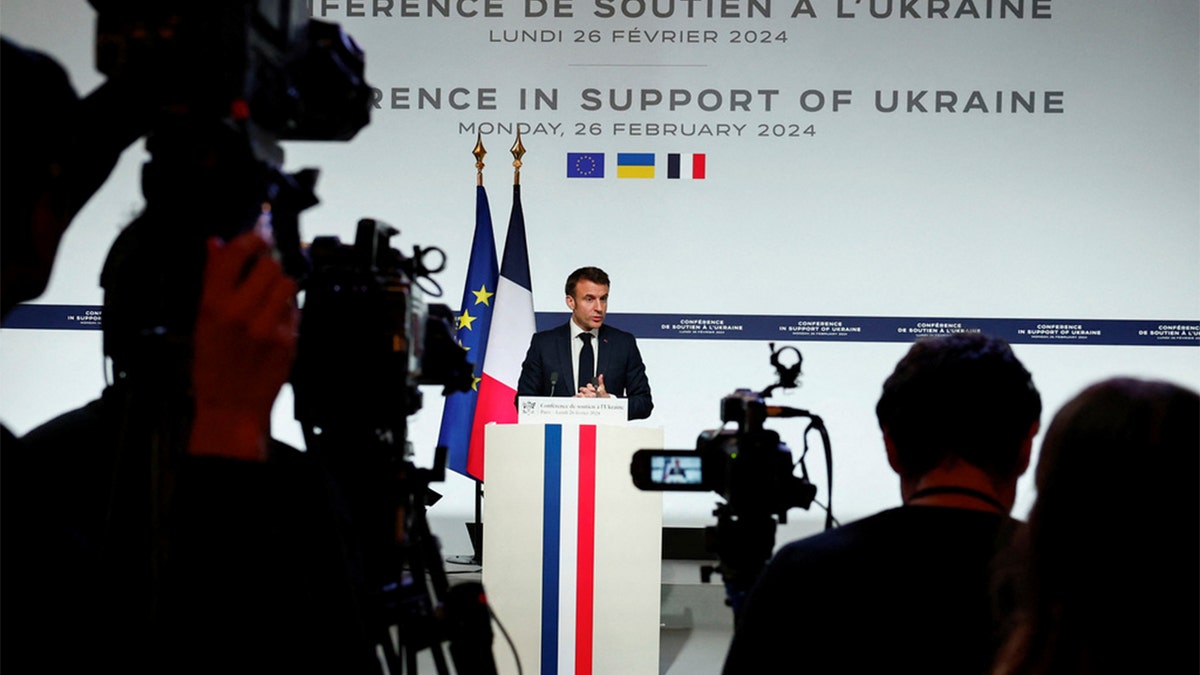Fox News Flash top headlines for February 28
Fox News Flash top headlines are here. Check out what's clicking on Foxnews.com.
Russian President Vladimir Putin warned Thursday that Western military intervention against their invasion of Ukraine could result in nuclear escalation.
During his state-of-the-nation address to legislators and government leaders, Putin accused Western nations of "selecting targets for striking our territory and selecting the most efficient [targets] – as they think [about] striking assets and talking about the possibility of sending a NATO contingent to Ukraine."
"We remember the fate of those who sent their troop contingents to the territory of our country," Putin said, referencing Russia's long history of repelling invading forces. "Now the consequences for the potential invaders will be far more tragic."

Russian President Vladimir Putin delivers an annual address to the Federal Assembly of the Russian Federation, at Moscow's Gostiny Dvor. (Kremlin Press Office/Anadolu via Getty Images)
"We also have the weapons that can strike targets on their territory, and what they are now suggesting and scaring the world with, all that raises the real threat of a nuclear conflict that will mean the destruction of our civilization," the Russian dictator continued.
Putin's defensive posturing comes after remarks from French President Emmanuel Macron that seemed to indicate willingness from NATO allies to put boots on the ground in defense of Ukraine.
Macron suggested on Monday that Ukraine’s allies would "do everything needed, so Russia cannot win the war," stressing that "nothing can be ruled out" and that European leaders had reached no consensus to "send in an official, endorsed manner troops on the ground."
SENDING EUROPEAN TROOPS TO UKRAINE REMAINS AN OPTION, SAYS FRENCH PRESIDENT EMMANUEL MACRON

Members of the Federal Assembly of Russia listen to Putin's speech in Moscow. (Kremlin Press Office/Anadolu via Getty Images)
NATO Secretary-General Jens Stoltenberg told The Associated Press that "there are no plans for NATO combat troops on the ground in Ukraine," adding that Ukraine has "the right to self-defense, and we have the right to support them in upholding that right" according to international law.
"Don't they understand it?" Putin asked during his state-of-the-nation address. "Those people haven't been through any tough challenges, and they have forgotten what war means."
French Minister of Foreign Affairs Stephane Sejourne later clarified Macron’s comments about military intervention, saying that support for Ukraine "must respond to very specific needs," citing concerns of cyberdefense, weapon production and ordnance clearance, but that the troops would not deploy for combat purposes.
CLICK HERE TO GET THE FOX NEWS APP

French President Emmanuel Macron speaks during a press conference at the Elysee Palace in Paris. (Gonzalo Fuentes/Pool via AP)
"Some of [support] actions could require a presence on Ukrainian territory, without crossing the threshold of fighting," Sejourne said in a statement to reporters. "Nothing should be ruled out. This was and still is the position today of the President of the Republic."
The NATO alliance has so far provided Ukraine with non-lethal aid, such as medical supplies and winter equipment, while individual members have made deals to provide weapons and training to Ukrainian troops.
Fox News Digital's Peter Aiken contributed to this report.




















